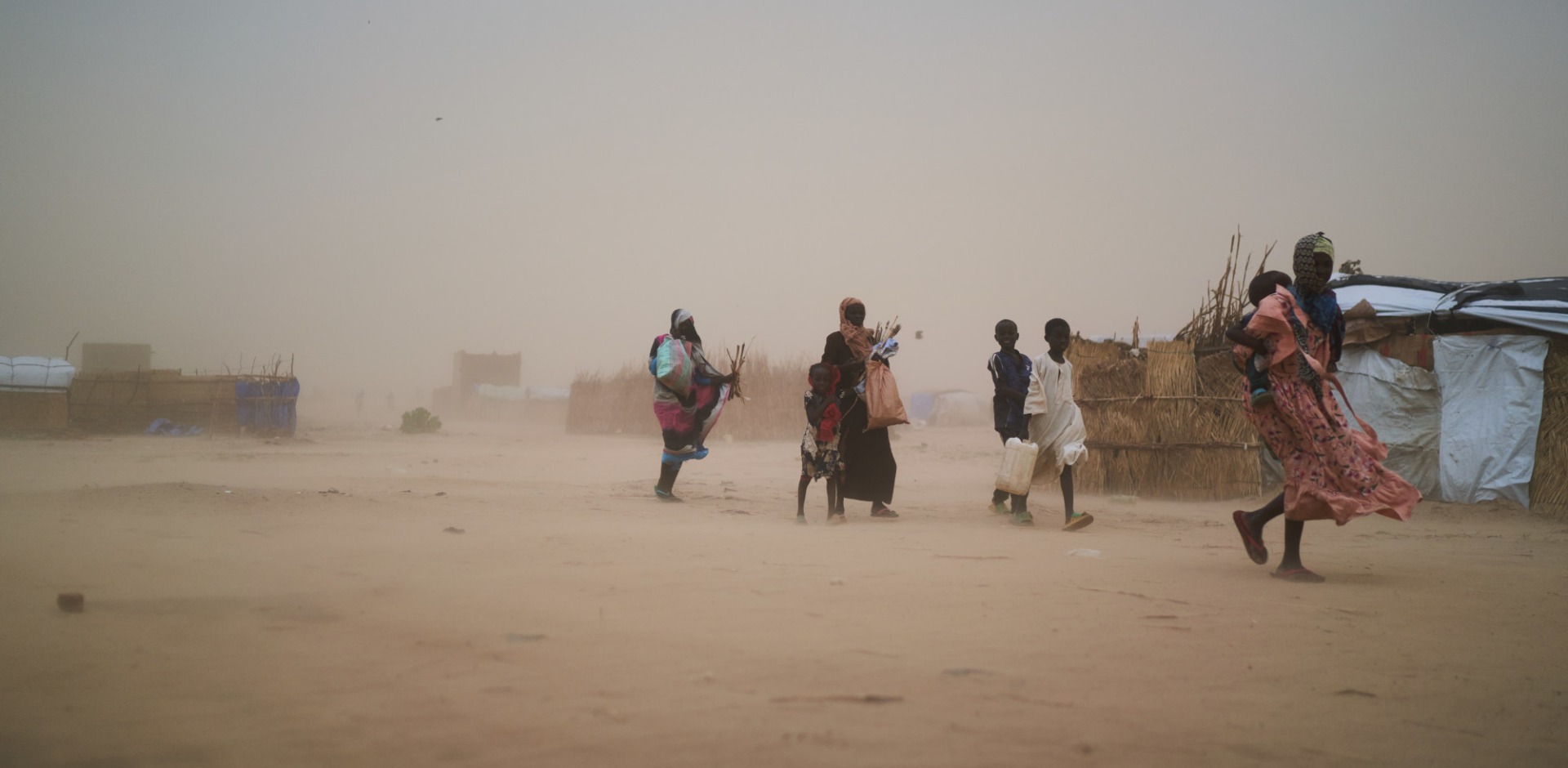
FAMINE IN SUDAN
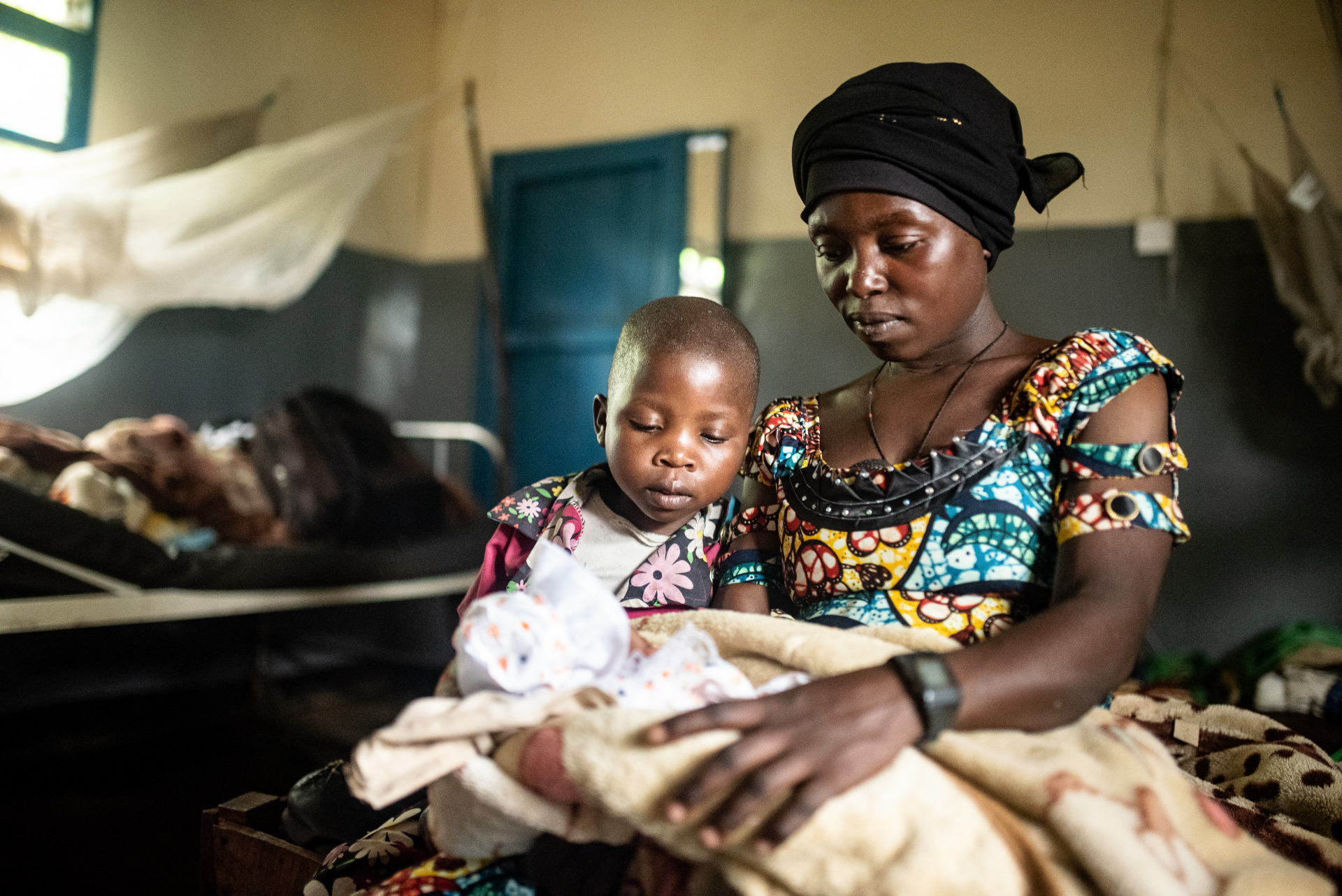
In the Democratic Republic of Congo, the physical and mental health of mothers are at the heart of our work.
In the Mweso region of North Kivu, in eastern Democratic Republic of Congo, Action Against Hunger works in very hard-to-access communities – ongoing conflicts make this area difficult to access safely. A recent spike in violence has further reduced already-limited transportation options, job opportunities, and health care services, resulting in increasing humanitarian needs.
Lack of opportunities and resources, combined with gender inequalities, puts pregnant and breastfeeding women among the most vulnerable people in this crisis, but they are also among our greatest allies in fighting maternal and child malnutrition. Sexual, maternal, and reproductive health programs, which include family planning, prenatal checkups, and postpartum care, as well as psychosocial support, empower women to make choices for the health of themselves and their families.
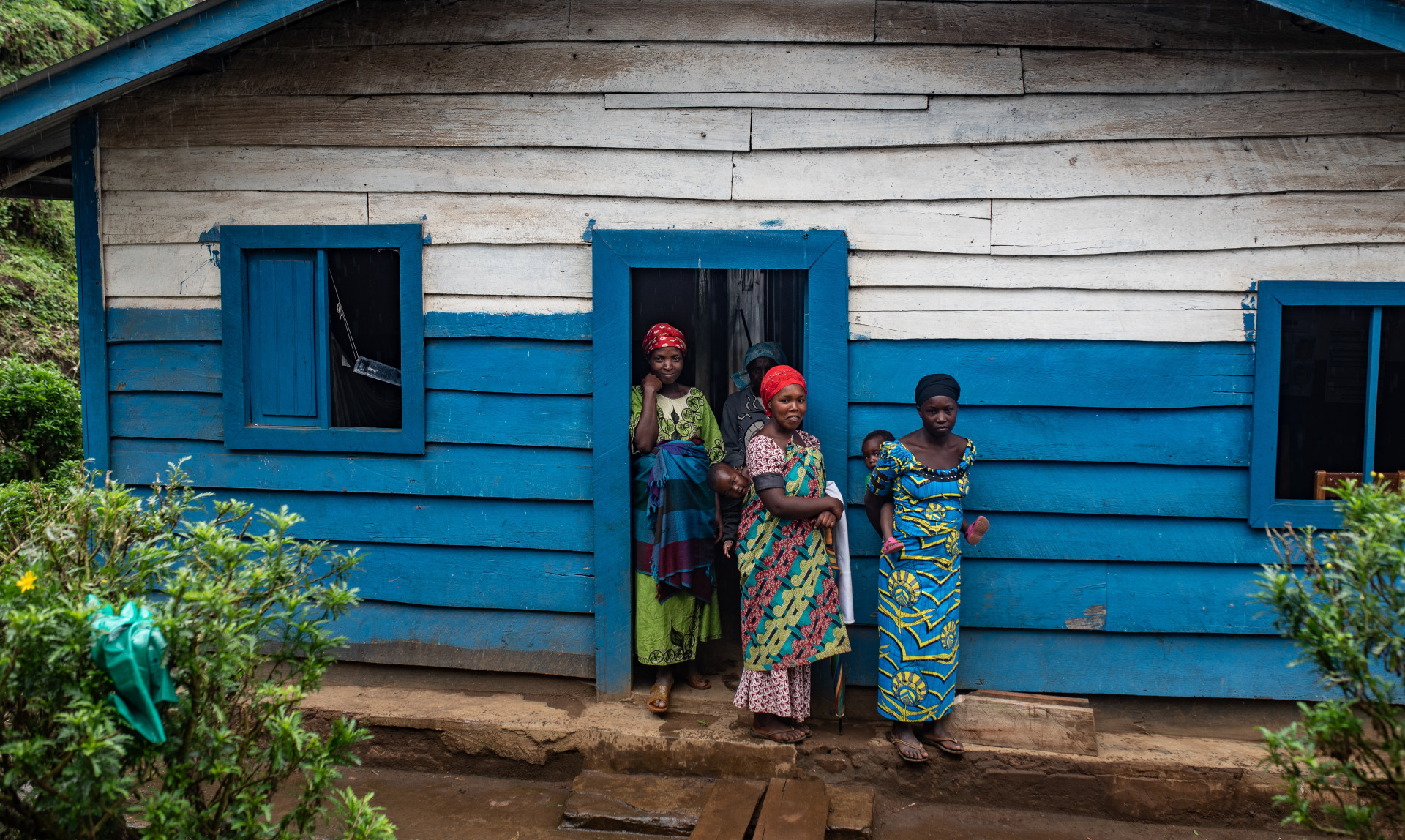
In the Democratic Republic of Congo, fewer than one in five pregnant women have their first prenatal visit in the first trimester. Similarly, just half of women attend postpartum health examinations. Maternal mortality rates here are among the highest in the world: 1 in every 34 Congolese women dies as a result of giving birth.
At Kibarizo Health Center, Action Against Hunger treats children suffering from severe acute malnutrition. Our teams also provide free care to pregnant and breastfeeding women through their pregnancies and their children’s first few months of life.
“It will make me happy to be called the child’s mother,” says Zawadi N’Bagoni with a smile. The 31-year-old farmer has just given birth. Action Against Hunger’s teams have been caring for her since she discovered she was pregnant. During their prenatal consultations, the nurses examined Zawadi and reassured her about her and her baby’s health, checked the position of her child, and gave her advice for a successful pregnancy and birth.
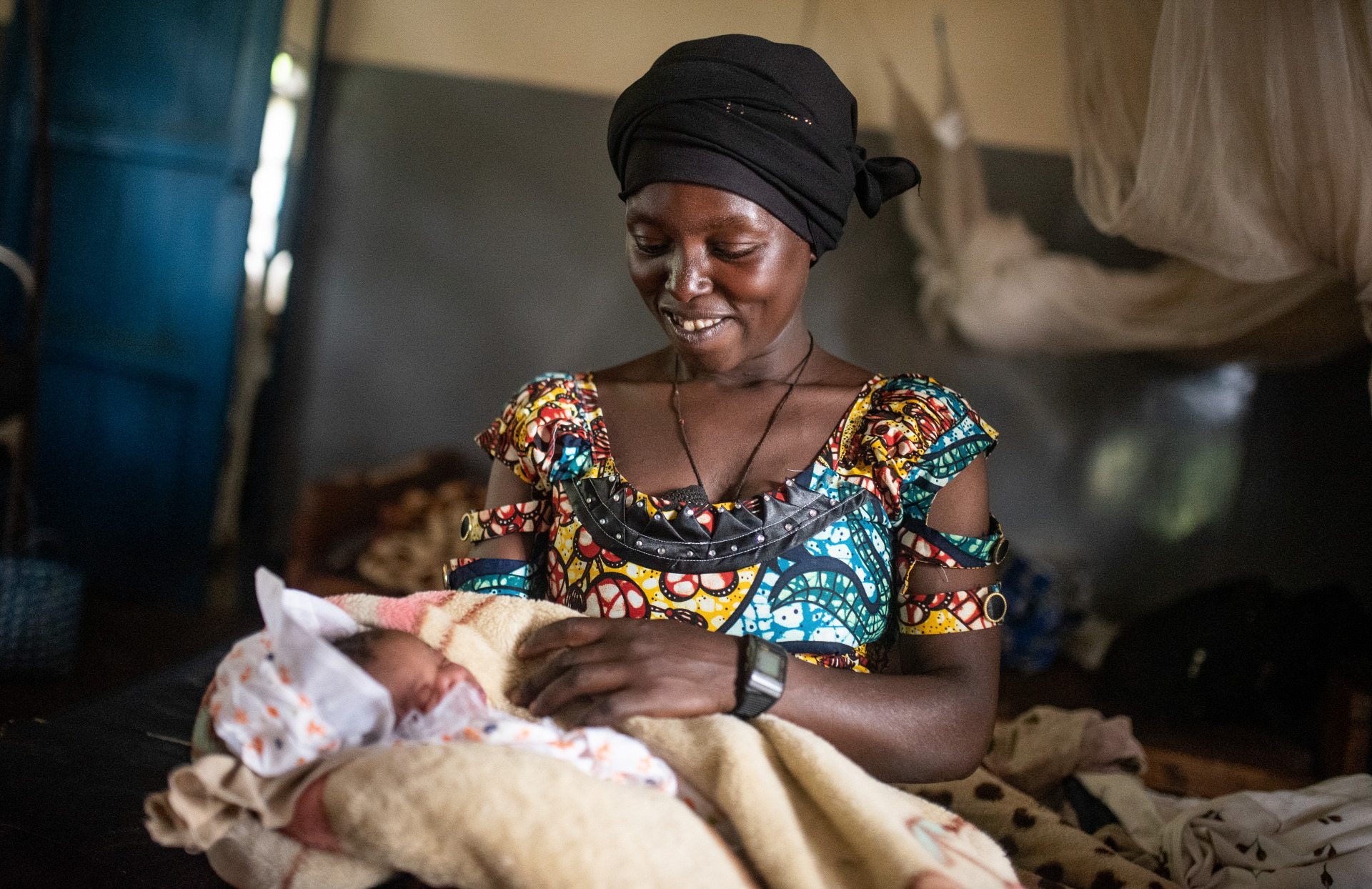
Berta Dusabe works as a midwife at Kibarizo Health Center and helps women like Zawadi. She has seen the enormous difference that free care has made.
“Not all women can manage childbirth [by themselves]. Before Action Against Hunger was here, home birth rates were very high,” she says. “Since many of them could not afford the birthing costs, they decided to do it at home, hoping only for God’s help.”
Word has spread in the community that women can receive health services for free, and the rate of home births has dropped and attendance for prenatal and postpartum check-ups has increased.
For Zawadi, giving birth to her child at home was not an option – she understood the risks involved. “We can also give birth at home, but there are always complications, we can have the baby, but he can die. [The mother] can die, too. The advantage of giving birth at the health center is that we are confident in the nurses and can consult with them at all times. In the event of complications, they are there to help you, they give the medicines that protect against infections and they also protect the child.”
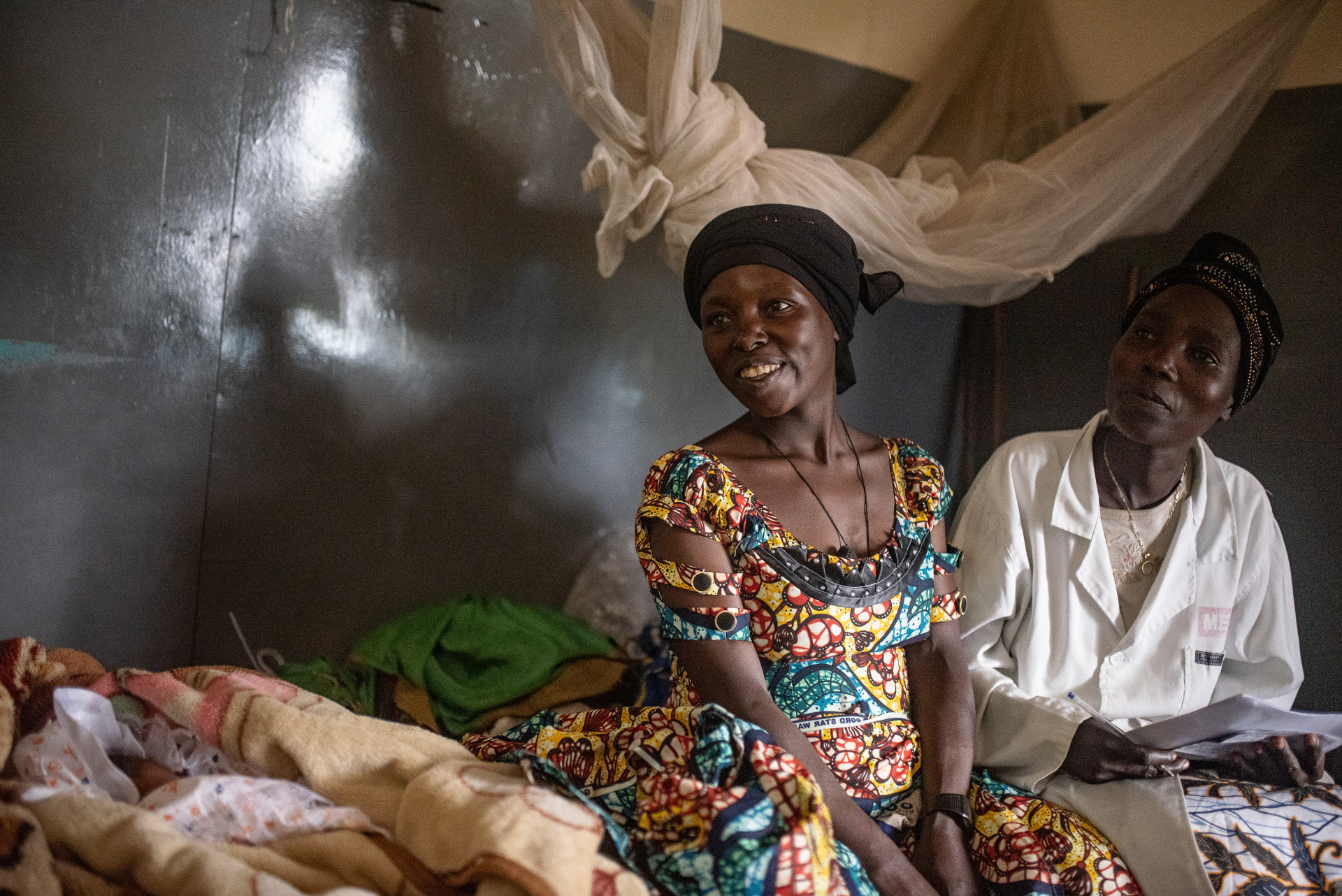
Medical complications are not the only burden on women in North Kivu. In this region, people have been exposed to violent events for many years, which can cause trauma, depression, and other mental health issues. For mothers, mental health challenges sometimes make it difficult to bond and properly care for their children, which can lead to malnutrition or other illnesses.
“There are pregnant and breastfeeding women in psychological distress,” explains Marie Trianon, Action Against Hunger’s field coordinator. “These women go through a lot of security difficulties, the loss of a child, potential domestic violence.”
In North Kivu, 1.9 million people are displaced, mainly due to conflict. Between January and September 2021, 15,954 cases of gender-based violence were recorded. Our teams have developed mental health care programs where groups of women come together to overcome their suffering, guided by psychosocial workers like Eddy Edige Magendo.
In support sessions, Eddy facilitates. He sits with groups of women, and sometimes presents photographs to the circle, like one of a child lying on a hospital bed. Visual aids can make it easier to bring up and talk about difficult topics.
“At the start of treatment, many of the women are depressed, anxious, stressed,” explains Eddy. “They have dark thoughts and feel guilty about the life they lead, but over the course of the sessions, they are taught to identify the negative people in their lives, the negative thoughts they have, and how to turn them into positive thoughts.”
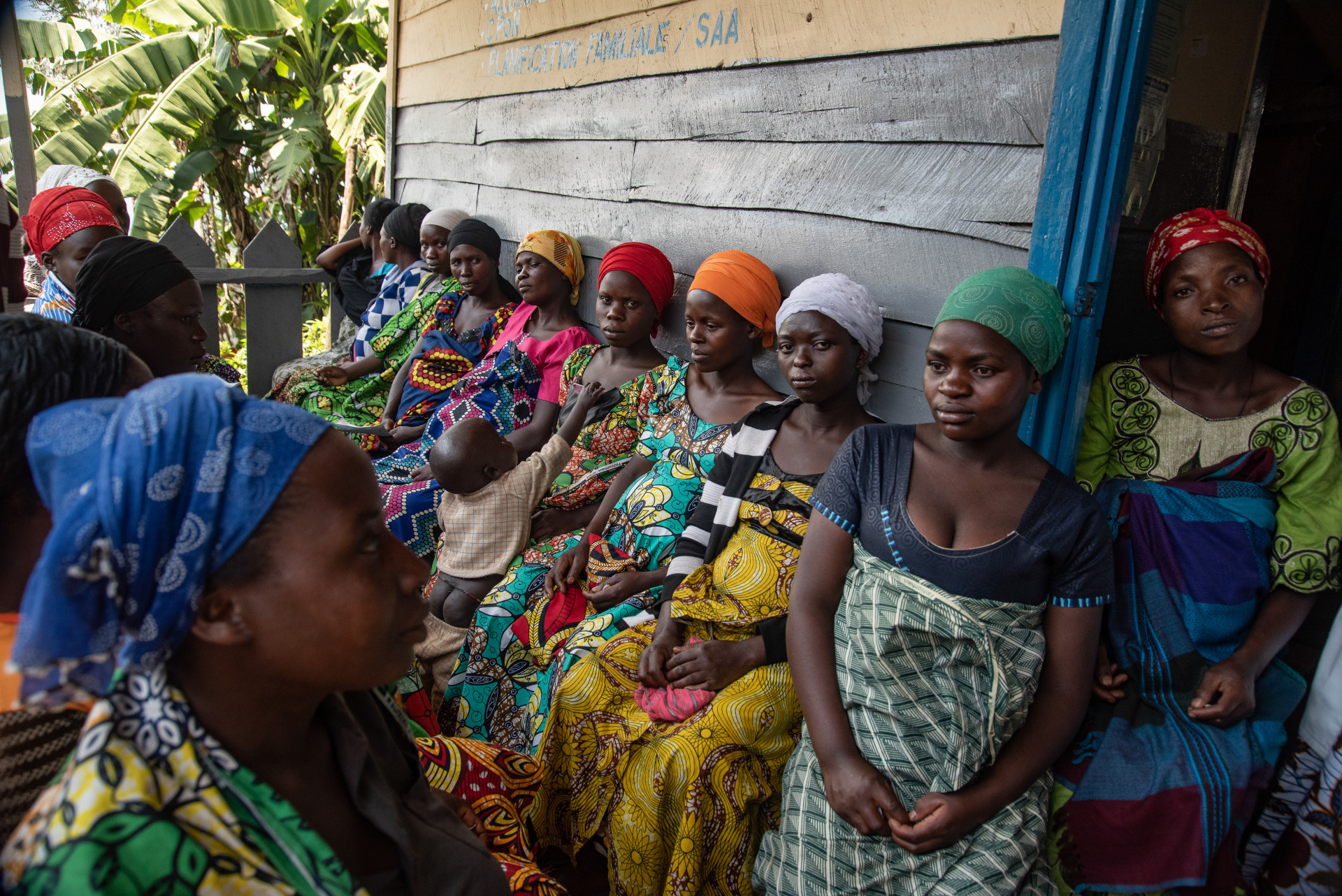
Women confide their worries: sleep ailments, lack of connection with their children, marital disagreements. Eddy notes that the feeling of guilt often surfaces again and again – guilt about not being a good mother, of not preventing a child from falling into malnutrition. In these cases, the psychosocial workers are unanimous: group dynamics are essential to normalize feelings, share experiences, and move together towards greater well-being.
“At first, not everyone understood the need or usefulness of psychological care. We do not distribute anything tangible, and it requires work. It’s after that we see the enthusiasm when the women come back and tell us they feel better. It does us good to learn that what we do brings good to our patients,” says Eddy.
Action Against Hunger provides and advocates for free access to sexual, maternal, reproductive, and mental health care for children and pregnant and breastfeeding women. Many families cannot meet the financial burdens of medical care, which can mean that people in need do not seek services or do not continue with treatments they cannot afford. Across the Democratic Republic of Congo, 8.9 million people need financial support to access health care.
Join our community of supporters passionate about ending world hunger.